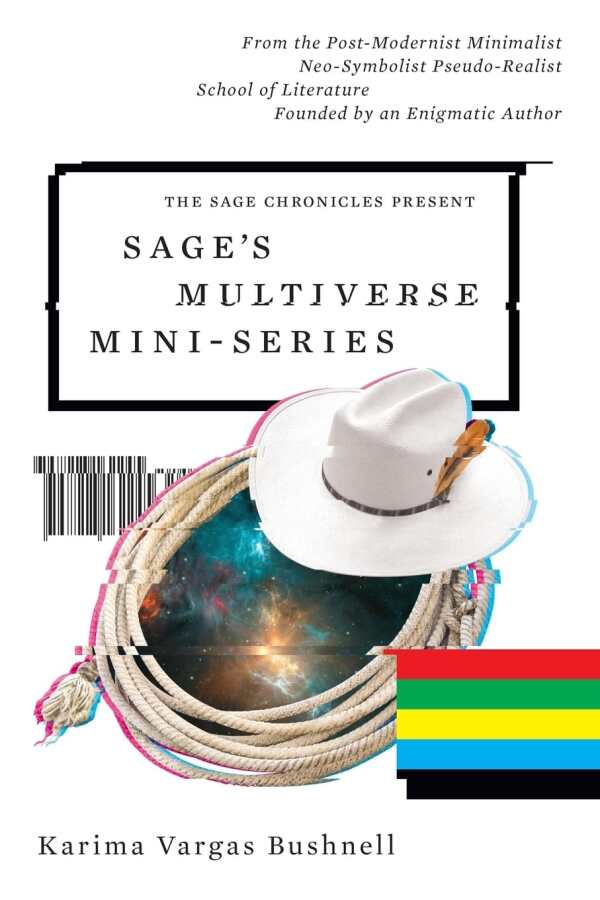Sage’s Multiverse Mini-Series
A multilayered text that revels in creation, speculation, and critique, Sage’s Multiverse Mini-Series is a challenging and delightful science fiction collection.
Written with flair, Karima Vargas Bushnell’s speculative novel Sage’s Multiverse Mini-Series is made up of novellas, poetry, and stories that are paired with postmodern metacriticism.
This seven-part book is part literary parody, part science fiction. In it, Basel, a critic, voices incredulity toward Halcyon Sage, a writer responsible for most of the work contained in the book. Elsewhere, various topics are riffed on, as with “The Most Annoying Aliens in the Galaxy” (the answer: the Snrr, who insist on an unpronounceable vocalization of “Snrr”). And first contact interviews between alien squids and humans appear in the format of a talk show interview and a narration of a NanoBot’s journey.
Recurring characters are the book’s throughline. They include Sage’s biographer, Ruby, and his friend Preisczech. Bushnell herself also makes cameo appearances, as with a section made up of both imagined emails and Bushnell’s diary entries regarding the exploits of a cat dubbed F. Atty Lumpkin, Esquire. At times, the technique delights; at others, it is interruptive to immersion in the book’s world. Still, differentiating between Bushnell and Halcyon Sage is engaging work that is exploited for laughs throughout.
Visual images, parody, and self-deprecating critiques interweave with flash fiction and poetry. The pieces explore themes including creative anxiety, awkward social interactions (regardless of species or time period), and the mixture of worry and delight that comes with both being discovered and being unknown. Playful subversions also recur throughout. These extend to the book’s front and back matter and to the inclusion of faux copyright pages before each Sage novella. Textual analyses of Sage’s work also appear in the midst of each piece, resulting in a multilayered text that revels in creation, speculation, and critique.
As it overturns literary expectations, the book finds plentiful material to riff on. But as it eschews conventional storytelling methods in favor of humor, the result is sometimes challenging reading. Sage’s characters are also not prototypical and do not always have depth, as his short novels encompass as little as two pages and can contain one sentence per page. As a result, the pacing—not only of each piece, but also across the whole book—remains fast and lighthearted.
A playful speculative novel in stories, Sage’s Multiverse Mini-Series plays with form to comedic and subversive effect.
Reviewed by
Mike Good
Disclosure: This article is not an endorsement, but a review. The publisher of this book provided free copies of the book and paid a small fee to have their book reviewed by a professional reviewer. Foreword Reviews and Clarion Reviews make no guarantee that the publisher will receive a positive review. Foreword Magazine, Inc. is disclosing this in accordance with the Federal Trade Commission’s 16 CFR, Part 255.

